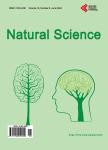The effect of global warming on beef production in developing countries of the southern hemisphere
在开发南部的半球的国家的在牛肉生产上的全球温暖的效果作者机构:ARC-Animal Production InstituteIreneSouth Africa University of the Free StateBloemfonteinSouth Africa Insituto Nacional de Ciencia e Tecnologia-InformacaoGenetico-Sanitaria da Pecuaria BrasileiraBrazil Departamento de ZootecniaUniversidade Federal de Rio Grande do SulPorto AlegreBrazil Centro de Energia Nuclear na AgriculturaUniversidade de Sao PauloPiracicabaBrazil Faculdade de Agronomia e Medicina VeterinariaUniversidade de BrasiliaBrasiliaBrazil Northern Cape Department of AgriculturalLand Reform and Rural DevelopmentJan KempdorpSouth Africa
出 版 物:《Natural Science》 (自然科学期刊(英文))
年 卷 期:2013年第5卷第1期
页 面:106-119页
学科分类:1002[医学-临床医学] 100214[医学-肿瘤学] 10[医学]
主 题:Adaptation Animal diseases Heat Stress Mitigation Strategies Nutritional Stress
摘 要:Developing countries from the southern hemisphere will be confronted by the same beef production challenges caused by global warming, because these countries are at the same geographical positions in southern latitudes. Global warming is expected to have a more extreme effect on the southern hemisphere than on other continents and will have a negative effect on the beef production environments in these countries. The negative effects will include high ambient temperatures, nutritional stress and altered patterns of animal diseases. Heat stress in beef cattle on veld/savannah is expected to increase as a result of changing weather patterns on a global and regional scale. This may negatively influence food production from beef cattle for the human food chain. Negative effects of increased temperatures and thus heat stress can include lower reproductive rates and weaning weights. The effect of heat stress can be partly addressed by nutritional strategies, such as replacing rapid fermentable carbohydrates with saturated fatty acids and the feeding of more by-pass protein and dietary electrolytes. Global warming will also alter the distribution pattern of animal diseases and the vectors of some of these diseases. This may even include the spread to South American countries. Likewise the nutritional value of natural pastures may be influenced. The effect of global warming on the quality of pastures will depend on whether the global warming is a result of increased carbon dioxide levels or not. An improved understanding of the adaptation of beef cattle to their production environments is important, but adaptation is complex and thus difficult to measure. Fortunately, several proxy-indicators for adaptation such as reproductive, production and health traits are available. The selection of animals and genotypes that are better adapted to the production system, including heat stress, is possible and should be persuade to ensure sustainable beef production in hotter climates.



